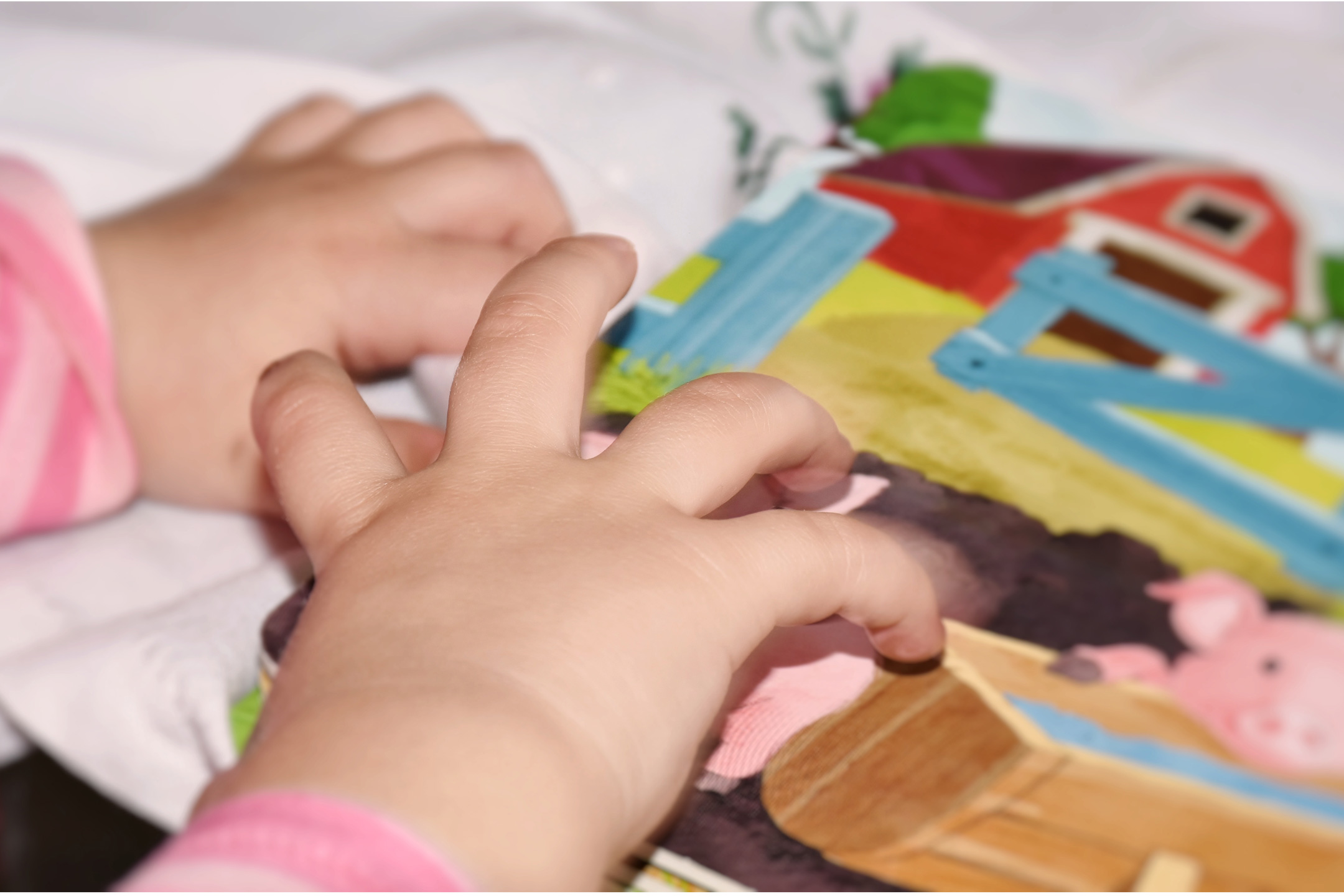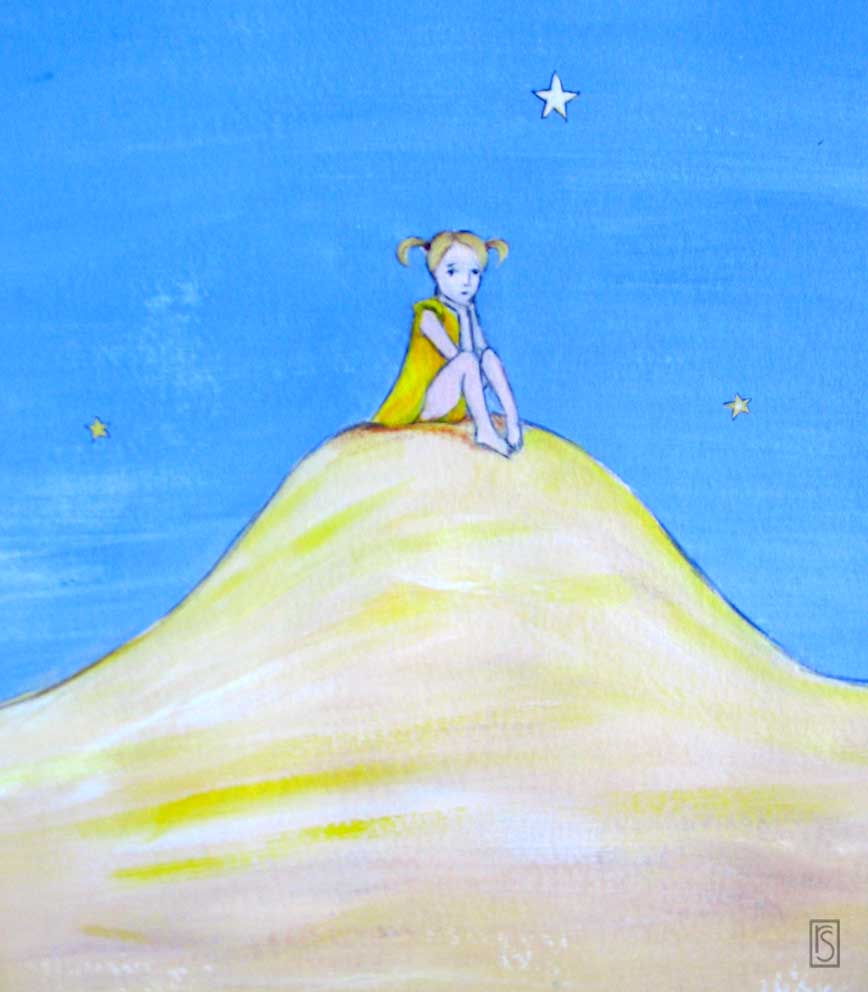
13 Feb Looking A Gift Horse In The Mouth
Katharine Clifton has a less-than-enthusiastic response to her daughter being assessed as gifted.
Almost six months ago, my daughter was diagnosed as gifted. It came about when she performed well beyond expectations in a vocabulary test at her three-and-a-half-year check-up and the maternal health nurse suggested that she be assessed professionally. I had always thought that she was quite bright – she talked early and often, is precocious, makes astute and often surprising connections between words and ideas, and is forever making up convoluted songs and stories. However, the nurse’s suggestion was unexpected. When the results of the assessment came in, I was taken aback and not even all that pleased. All I could think of as I read the report was that if she was gifted, what did that make my son?
All parents think their child is special. And all parents, I always imagined, would love to have this confirmed. Admittedly, when my husband and I were first told that we might have someone out of the ordinary on our hands, we were excited by the possibility, and I certainly didn’t delay in making the appointment for the formal testing. But in the time since the assessment confirmed the nurse’s suspicions – that our daughter is three to four years ahead of her peers verbally and socially – I’ve mainly felt uneasy.

I’m not sure about labelling my child. A label will bring pressures, alter perceptions, and contain the potential to change the way people (including myself) respond to my daughter. Labelling one child also, by definition, labels my other child – he isn’t gifted, therefore he is ordinary, average. I don’t want my son ever to feel as if he is inferior to his younger sister; that she is the improved model; that he is somehow not quite up to scratch.
This would be particularly unfair given that, quite frankly, he is the nicer child. He is easy and rewarding to parent. She is driven, pushy and, not just eager, but at times positively anxious for experience, knowledge and independence. Where my son is loving, calm, thoughtful and sensitive, my daughter is a little blonde tornado ripping through life: competitive, argumentative, precocious, opinionated and demanding of attention… and an audience. My son chats easily and sweetly to me about school, Lego, his transformers. My daughter thinks about things intensely and experiences sob-inducing levels of frustration when she can’t easily convey a thought or idea. Although she is extraordinarily social and makes friends quickly, I do wonder if she will make enemies just as readily later on given her determination to have her way, her impatience when others aren’t as quick-witted as she is and the sheer force of her personality.
Life with Lauren is often just plain exhausting.
She constantly asks questions and is always busy, leading me to understand how giftedness is frequently misdiagnosed as ADHD. Since becoming a toddler, she has been a shocking sleeper, waking numerous times a night to ask me a question or to enquire as to what we are doing tomorrow and the day after that. Even when she is asleep she looks restless – face serious, brow creased, hands clenched, barely holding onto slumber against the fierce desire to wake up and seize the day. If this is giftedness, is it really something to aspire to?
I have other reservations about the diagnosis.
Giftedness rarely applies to all aspects of a child’s cognition. Although Lauren expresses herself beautifully when speaking and has effectively taught herself to read, she is still a long way off writing – holding the crayon in the typical whole-fist grasp of a three year old – and her motor and numerical skills are only average for her age. Yet, I fear that if I were to advertise the fact that she has been designated ‘gifted’, others would expect her to be advanced in everything. Also, the label has been applied on the basis of just one assessment that was undertaken when my daughter was at an age when testing is known to be less reliable than when a child has reached school age.
Even if she is gifted, I can’t help wondering what is the point of making such a distinction. The literature suggests that early identification of intellectual potential is important to facilitate stimulation and schooling. But I’d like to think that her family and teachers would be doing the best by her without any added impetus to hothouse, push her or expect too much. Maybe a little knowledge is a dangerous thing. Also, she will start school when she is quite young, by virtue of a birth date just prior to the cut-off.
Since researching the assessment of my daughter, I have learnt that giftedness is no guarantee of academic, occupational or even personal success. On the contrary, such individuals are more prone to depression and anxiety, to difficult interpersonal relationships, towards challenging authority and to dropping out of formal education. As Sylvia Plath wrote of her newborn son in her beautiful poem Three Women:
I do not will him to be exceptional.
It is the exception that interests the devil.
It is the exception that climbs the sorrowful hill,
Or sits in the desert and hurts his mother’s heart.
I also worry that this designation of giftedness might raise my own bar of expectation. If she drops out of uni to dance barefoot in the forest, will I be devastated rather than resigned? Similarly, I would hate her to be presented to teachers or peers as gifted and, therefore, I have no intention of sharing the news with anyone outside our immediate family. What’s to be gained by that? Only expectations, and I’m not interested in expectations, only possibilities. Let my daughter earn her reputation or opportunities on the basis of what she does, not of what she could be.
When I voiced some of these concerns to my mother, she responded that I should be thrilled with the news – imagine if I’d instead been told that Lauren was developmentally delayed or disabled. She’s quite right, and I am grateful to know that my firecracker child is as unique and full of promise as I always believed. But for all the other reasons, I remain unconvinced. This diagnosis is not quite the gift I thought it would be.
*Names have been changed.



